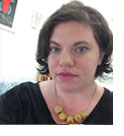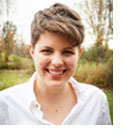Venue
The New York Academy of Medicine, 1216 Fifth Avenue at 103rd Street, New York, NY 10029
Cost
$25; maximum 30 people.
This event is currently sold out. To join the waiting list, please email culturalevents@nyam.org.
Panel Discussion: What Do People Mean When They Say "Digital Humanities"?
The catch-all term “digital project” can refer to a daunting array of technologies and methods. For a newcomer (or even an experienced practitioner), it can be hard to know where to start. In this panel discussion, we’ll examine a range of digital projects to get a handle on what’s out there. The panelists will share simple principles for figuring out the sources and technologies that constitute a “project.” It will help you with modelling your own project, understanding digital projects and evaluating someone else’s project.
Hands-on Workshop: Visualizing Humanities Data
Bring your laptop and learn that there's more to a spreadsheet than meets the eye! Structuring information in a table is the key to visualizing it as graphs, charts, maps, and more. We'll talk about how to find and structure data, including the kinds of data scholars in the humanities tend to be interested in. We'll also learn how to use Palladio, a kind of Swiss Army-knife for visualizing humanities data. This workshop is geared toward those who are new to data visualization.
 Miriam Posner is the Digital Humanities program coordinator and a member of the core Digital Humanities faculty at the University of California, Los Angeles. A film, media, and visual culture scholar by training, she frequently writes on the history of science, technology, and medicine. She is also a member of the executive council of the Association for Computers and the Humanities.
Miriam Posner is the Digital Humanities program coordinator and a member of the core Digital Humanities faculty at the University of California, Los Angeles. A film, media, and visual culture scholar by training, she frequently writes on the history of science, technology, and medicine. She is also a member of the executive council of the Association for Computers and the Humanities.
 Heidi Knoblauch is the Digital Projects Coordinator for the Experimental Humanities Initiative at Bard College. She holds a PhD in History of Science and Medicine from Yale University and specializes in medical photography and patient privacy in the United States. She regularly gives public talks and workshops on digital humanities and the history of medicine and is part of a growing conversation about the role digital humanities can play in social justice.
Heidi Knoblauch is the Digital Projects Coordinator for the Experimental Humanities Initiative at Bard College. She holds a PhD in History of Science and Medicine from Yale University and specializes in medical photography and patient privacy in the United States. She regularly gives public talks and workshops on digital humanities and the history of medicine and is part of a growing conversation about the role digital humanities can play in social justice.
View our COVID-19 Safety Protocols for attending NYAM public events.